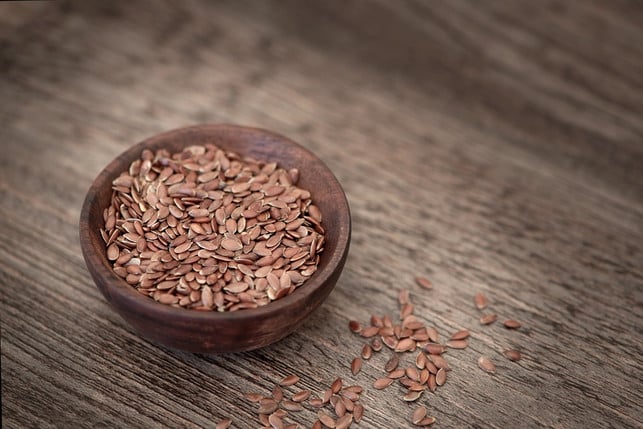
Gastrointestinal flu is an unpleasant infection that can be alleviated with home remedies. You can find out here which foods you better avoid and which symptoms are typical.
Gastrointestinal flu is widespread worldwide and can meet everyone. Although the name suggests otherwise, the gastrointestinal flu (language gastroenteritis) has nothing to do with the colloquially flu-called influenza. In contrast to the influenza, which is transmitted by viruses, different pathogens can be responsible for gastrointestinal flu.
The symptoms of the two diseases are also very different: While cold -like symptoms occur in the event of flu, the symptoms of gastroenteritis are mainly limited to the stomach and intestine. Different home remedies also provide relief for diseases. One also speaks of the gastrointestinal infection, since the mucous membranes of the stomach and small intestine are inflamed. Our body often reacts to this damage to the mucous membranes with vomiting and diarrhea. Vomiting is a protective function of the body with which he tries to get rid of the pathogens. Diarrhea occurs because the restricted function of the intestinal mucosa contains more water in the food porridge.
Diarrhea can have many causes, there is not always a gastrointestinal infection behind it. Athletes also: the symptoms know the inside. Here you will learn more about the so-called runner diarrhea: runner diarrhea: How to encounter gastrointestinal complaints during sports
Gastrointestinal infection-these are the symptoms

Usually the symptoms occur in the stomach and the intestine a few hours after the infection. Typical symptoms are:
- nausea
- Vomit
- strong diarrhea
- Abdominal pain
- Abdominal cramp
It is very typical of a gastrointestinal infection that these symptoms can occur out of the blue and very violent. Due to the diarrhea and vomiting, the body loses large amounts of liquid and also important salts (electrolytes). In extreme cases, this loss of fluid can lead to drying out.
Further symptoms can also occur:
- Fatigue and exhaustion
- Body ache
- Headache
- Fever
- Blood in the chair
How much these symptoms occur and how long they continue depends on the type of pathogen.
In the rarest of cases, gastrointestinal flu is a serious danger to health. But a medical visit is advisable in any case when children, old people, pregnant women or breastfeeding as well as people with immune deficiency are affected.
If you don’t belong to these risk groups, you should also look for help if the following symptoms are added:
- Strong circulatory problems, drowsiness, confusion or muscle cramps
- bloody diarrhea
- The vomiting cannot be stopped and a liquid intake is not possible
- The diarrhea lasts for more than three days
- There are signs of drying (dry mucous membranes, standing skin folds, dry mouth)
-
Fever over 40 degrees Celsius.
Home remedies for gastrointestinal-the right food

The most important and easiest that you can do with a gastrointestinal flu is enough to drink. Try to consume water or herbal teas again and again in small swallows to compensate for the loss of fluid.
In addition to drinking, it is also important to absorb some food. Even if it is difficult to keep a lot with you, your body needs the food for regeneration. In addition, the body can compensate for the shortage of electrolyte through food. You should consider the following tips:
Light food
Greasy foods that also put a strain on the digestion are out of place with a gastrointestinal flu. We have listed some recommendations (here you will find more tips on gastrointestinal food):
- Vegetable broth
- Pasta
- rice
-
White bread (for example toasted bread and rusks)
- potatoes
- Porridge (recipe for stomach -friendly oat mucus soup)
- Fine grated apple
- Crushed bananas
You should do without the following foods:
- Sugar and caffeinated drinks (such as fruit juices, cola or coffee)
- Drinks with carbonic acid
- Dairy
- alcohol
Contrary to the popular opinion, cola and salt bars are rather not recommended. Although salt rods are well digestible, but contain only sodium and no potassium. Potassium is an equally important salt. Cola delivers a lot of water, but the high sugar and caffeine content can additionally irritate the stomach. Here you can find out more about the myth: Salz sticks in the event of diarrhea: Does that really help?
Always listen to your gut feeling while eating. People often know intuitively very well what they can take well and therefore can consume.
Gastrointestinal: What to do about diarrhea?

In the case of diarrhea, a distinction is made between adsoredics and source substances. While adsorbents bind the germs and they are excreted together, source substances bind the water in the intestine. In this way, the chair becomes firmer, increases in volume and the body can also leave bacteria and toxins more easily. Incidentally, sources not only help with diarrhea, but are also an effective remedy for constipation.
Adsorbente:
-
Pectins: Many fruits contain pectins, for example: apples, carrots, apricots, citrus or quinces. Tip: To form an apple pectin, you have to rub it raw.
-
Healing earth: This is very fine sand. The powder from loess deposits can bind toxins.
-
Activated carbon: The porous carbon can bind toxins. You can find this old medicine in the pharmacy. However, you should always discuss the intake with the pharmacy staff or another medical specialist, since the means may also have an impact on the effectiveness of other medications.
Sproven fabrics:
-
Psyllium husks
-
linseed
Home remedies against gastrointestinal: more tips

Tea is very suitable for keeping the liquid balance in balance and preventing dehydration. Pay attention to stomach -friendly tea types such as:
-
Fennel and chamomile tea: These teas have a calming effect on the gastrointestinal tract.
-
Green and black tea: The tannins contained protect the intestinal mucosa.
-
Tea made of dried blueberries: Smooth two teaspoons of dried blueberries and pour them into boiling water with 150 milliliters. This infusion also contains tannins that support the intestinal mucosa. However, it only helps with slight diarrhea.
Heat bottle for the belly: Heat is a very simple but effective remedy, especially in the case of abdominal cramps.
Ginger and lemon: They help against nausea and vomiting.
Gastrointestinal infection-tips for preventing

The pathogens of the gastrointestinal flu are stubborn and quickly transmitted, but with simple measures you can still reduce your risk of infection:
-
Pay attention to hygiene: wash your hands thoroughly.
-
Avoid contact with the sick: This also means that you should stay at home as a sick person. If possible, sick people should use their own toilet.
-
Avoid raw food on long -distance travel: In countries with lower hygiene standards, eating raw food can quickly irritate the intestine of travelers. Therefore, you should peel raw fruit and vegetables before eating, boil water and always cook in particular animal foods.
Gastrointestinal interior and infection

The gastrointestinal flu is a very contagious disease and is transmitted by different pathogens (viruses, bacteria, salmonella or parasites). Once infected, you are immediately contagious and remain a few days to weeks after the symptoms subsided. Most of the time you put yourself about a so -called “smear infection”.
There are a variety of different pathogens: In addition to viruses (especially Noro and rotaviruses), bacteria (e.g. salmonella) and parasites can also be responsible for the disease. Depending on the type of pathogen, there are other ways of infection:
-
Dropche infection (for example in Noroviruses): viruses are in the air and are inhaled.
- Salmonella can also be transferred from the animal to humans. Examples are not sufficiently chilled raw eggs or milk and meat products
Depending on the type of pathogen, the risk of infection varies greatly. In general, however, the more germs the diseased excretes, the more contagious it is for others.
Revised by Adriana Jodlowska
Read more on utopia.de:
- Colon cleaning and intestinal renovation: these are the differences
- Flu: Everything you need to know about influenza
- Home remedies for abdominal pain: what really helps
** marked with ** or orange underlined Links to sources of supply are partially partner links: If you buy here, you will actively support Techzle\.com, because we will then receive a small part of the sales proceeds. More information.